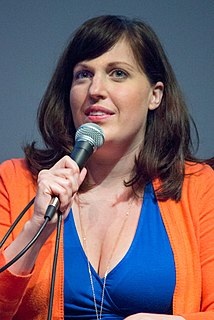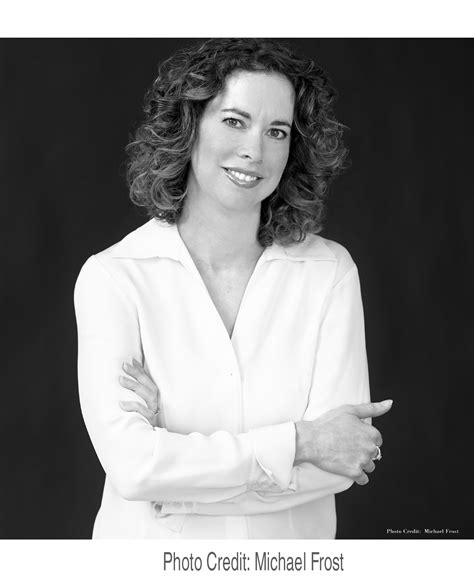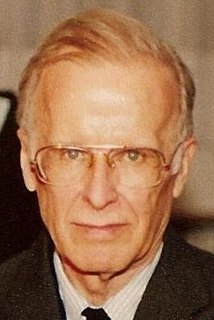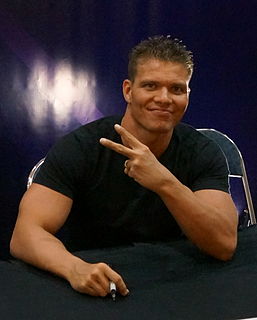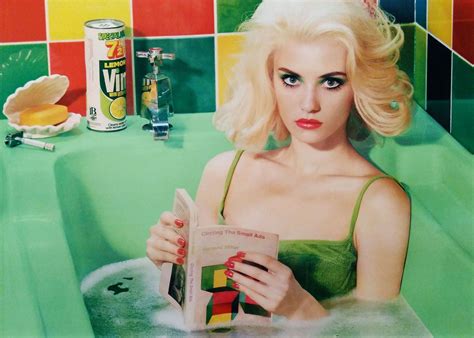A Quote by Kenneth Koch
As I look over my work, I mean every time I look over my early work, I see, yes, I could do that then and then I could do that and that... That may be the hardest thing for a writer, at least for a poet, to tell what the identity of his work is.
Related Quotes
Human beings look separate because you see them walking about separately. But then we are so made that we can see only the present moment. If we could see the past, then of course it would look different. For there was a time when every man was part of his mother, and (earlier still) part of his father as well, and when they were part of his grandparents. If you could see humanity spread out in time, as God sees it, it would look like one single growing thing--rather like a very complicated tree. Every individual would appear connected with every other.
Kevin Feige and I have very smart people who work for us, who make sure that we see everything. And that we actually see everything. They see everything, tell us about it, we see it. You have to have people who work with you, who say 'you have to look at this film'. And then you look at it. You really have to look at it. You have to look at movies all the time.
The thing about theater that always and still kind of makes me edgy is that you work and work and work and work, and then you're just in performance mode, and then you have to just be on; the work is done, and then you just have to do it over and over again, so you're just constantly at that performance level.
When the artist is truly the servant of the work, the work is better than the artist; Shakespeare knew how to listen to his work, and so he often wrote better than he could write; Bach composed more deeply, more truly than he knew, Rembrandt's brush put more of the human spirit on canvas than Rembrandt could comprehend. When the work takes over, then the artist is enabled to get out of the way, not to interfere. When the work takes over, then the artist listens.
When I'm editing, I tend to cut, go back over it, cut, go back over it, cut, so by the time I'm done, even with a cut, I don't have a rough cut and then work on it so much. I have a pretty rigorous cut of the movie that's usually in the range of what the final movie is going to be. It doesn't mean I don't work on it a lot after that, but I get it into a shape so I feel I can really tell what it needs, or at least it's ready to show people.
[Riley] slapped his hands to his face and then dropped them as if in surrender. 'I always say the wrong thing around you. Look, can we start over?' Over?" Yes. Over. Wipe the board clean.' But I would have to go back to hating you and not trusting you' I said Oh, well don't do that.' He paused and chewed his lip. 'Does that mean you like and trust me now?' " - Riley and Trella
Look - I'm an African-American. I'm black. But I'm just looking at the character and trying to find his soul, his energy. If you can wipe away the blanket of skin and flesh that people tend to see, and look inside for the essence of the soul, then that's the work I'm doing. That's the work I always do.
I always listen to music when I write! I basically make a playlist for every essay; sometimes it's just one song, or three songs, over and over and over. I sort of find the emotional pitch of the piece, and then match music to it, and then the music becomes a shortcut to the feeling, so I can enter it and work anywhere: on planes, cafes, at work, the train.
I like the drawings. And as a photography fan myself, I would look at Helmut Newton or Irving Penn and like to see the initial notes or drawings, to see where the ideas grew from. Also my sketches are key to my work because I came to realise early on that by doing drawings, I could formulate a plan of what I was thinking of - I could take control and direct the work.
When you look back on a historical period of music, it seems so obvious to you what the characteristics of it are, but they're not obvious at the time. So, when I look back at my own work, I could easily write a very convincing sort of account of it that made it look like I had planned it all out from day one and that this led logically to that and then I did this and then that followed quite naturally from that. But that's not how it felt.
We aren't defined by our work. People think if you over-identify with your work, then that must mean you're giving over too much of yourself to it, that there's something wrong with that. We're trained to believe in things like work-life balance. So much work is tending towards service. It's very much about creating experiences rather than products, and it makes those boundaries between life and work very slippery.



